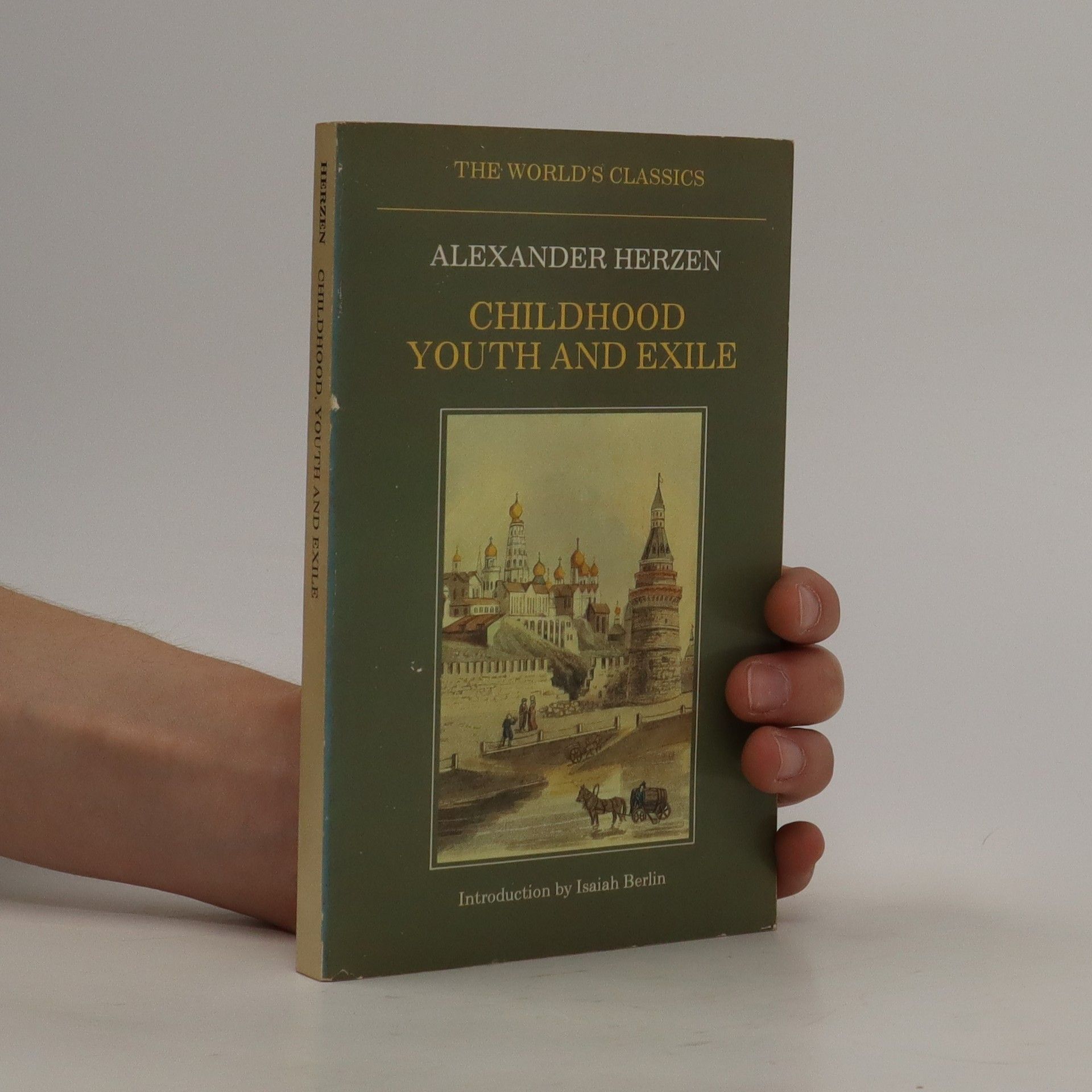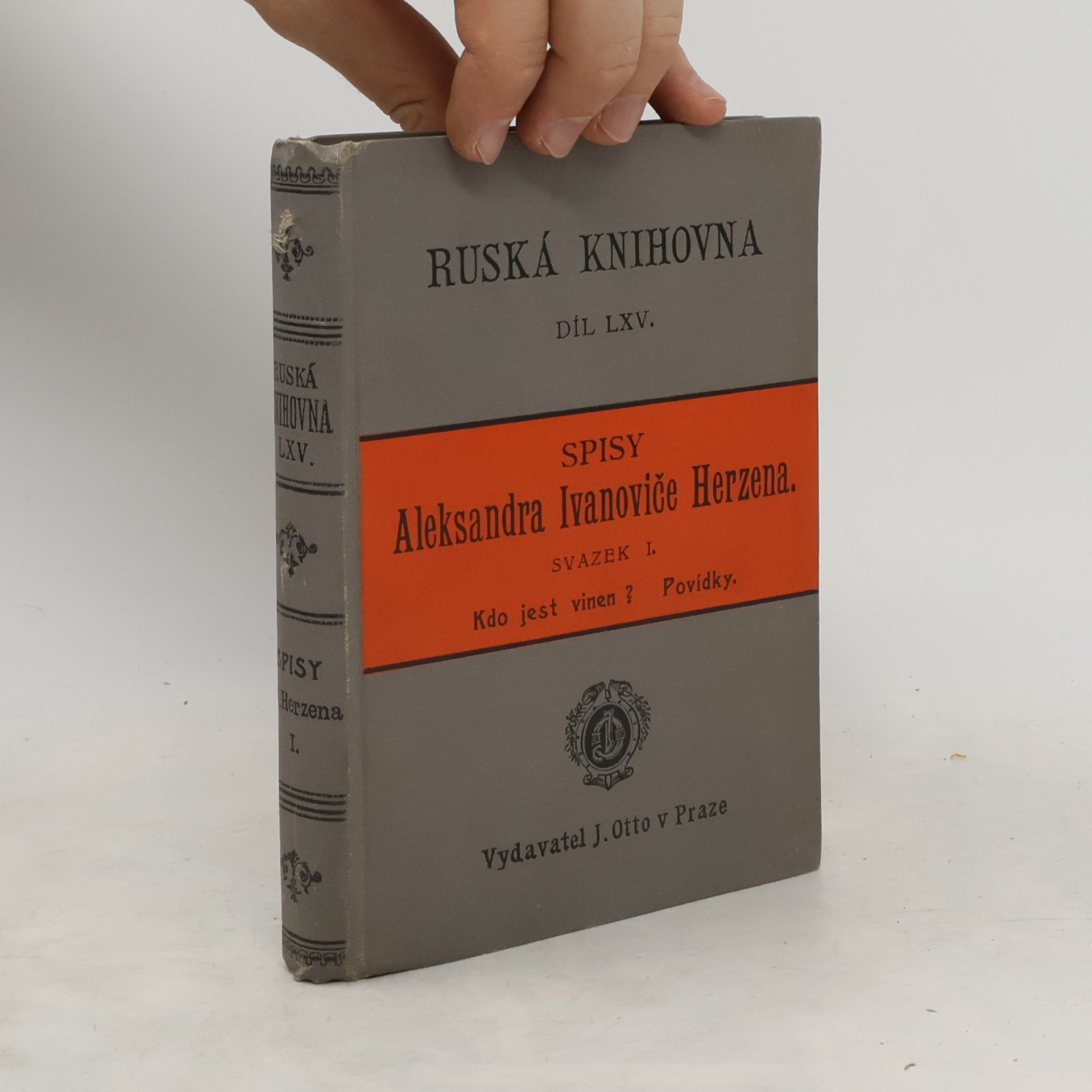Alexander Herzen's own brilliance and the extraordinary circumstances of his life combine to place his memoirs among the great testimonies of the modern era. his friends and enemies - Marx, Wagner, Mill, Bakunin, Garibaldi, Kropotkin - are brought brilliantly to life;
Aleksandr Herzen Livres
Alexandre Herzen était un écrivain et penseur russe pro-occidental, connu comme le "père du socialisme russe". Il est considéré comme l'un des principaux fondateurs du populisme agraire et un ancêtre idéologique de nombreux mouvements politiques. Son autobiographie, écrite avec grâce et énergie, est considérée comme un chef-d'œuvre de la littérature russe.






Alexander Herzen's own brilliance and the extraordinary circumstances of his life combine to place his memoirs among the great testimonies of the modern era. his friends and enemies - Marx, Wagner, Mill, Bakunin, Garibaldi, Kropotkin - are brought brilliantly to life;
Parts 1 and 2 of "My Past and Thoughts", one of the monuments to Russian literature, comparable to the works of Tolstoy, Dostoevsky, and Turgenev. Herzen's adventures in exile are vividly recounted, with rich observation of detail.
Herzen's narrative provides a vivid portrayal of his experiences during exile in Siberia, highlighting the brutal conditions and moments of camaraderie among fellow exiles. His reflections delve into themes of freedom, justice, and individual agency, revealing a profound philosophical outlook shaped by his struggles. The account also serves as a critique of the oppressive Tsarist regime, making it a significant historical document. This work captures not only personal resilience but also the broader political turmoil of 19th-century Russia, appealing to those interested in history and human experience.
The Memoirs of Alexander Herzen, Parts I and II
- 254pages
- 9 heures de lecture
The Memoirs of Alexander Herzen, Parts I and II, is a significant historical work that offers insights into the life and thoughts of the influential Russian writer and thinker. This contemporary republication ensures the preservation of Herzen's reflections, making them accessible to both present and future readers. The text has been carefully retyped, redesigned, and reformatted for clarity and readability, enhancing the experience of engaging with this important literary piece.
Wer hat Schuld?
- 260pages
- 10 heures de lecture
Alexander Iwanowitsch Herzen, ein bedeutender russischer Denker des 19. Jahrhunderts, wurde als Sohn einer deutschen Mutter und eines russischen Adligen geboren. Aufgrund der nicht rechtsgültigen Ehe seiner Eltern erhielt er den Namen Herzen, was auf seine Herkunft als "Kind des Herzens" hinweist. Die Biografie beleuchtet nicht nur sein Leben, sondern auch seine Rolle als Philosoph und Publizist, der maßgeblich zur intellektuellen Landschaft Russlands beitrug.
Кто виноват (Kto vinovat?)
- 320pages
- 12 heures de lecture
Александр Иванович Герцен - философ, публицист, писатель, революционер, оставивший неизгладимый след в истории России. Его свободное слово на протяжении многих лет представляло в Европе прогрессивную русскую общественную мысль. Творческое наследие Герцена обширно и многообразно, но оно проникнуто единым гуманистическим пафосом и глубоко личным переживанием истории. После выхода романа "Кто виноват?" (1847) В. Г. Белинский писал Герцену: "У тебя, как у натуры по преимуществу мыслящей и сознательной... талант и фантазия ушли в ум, оживленный и согретый, так сказать осердеченный гуманическим направлением, не привитым и не вычитанным, а присущим твоей натуре". "Кто виноват?" - интеллектуальный роман, и вопрос, вынесенный в его заглавие, не имеет однозначного ответа. Может быть, поэтому он с такой силой отозвался в сердцах современников писателя. В настоящее издание, помимо романа "Кто виноват?", вошли повести "Сорока-воровка" и "Доктор Крупов".



